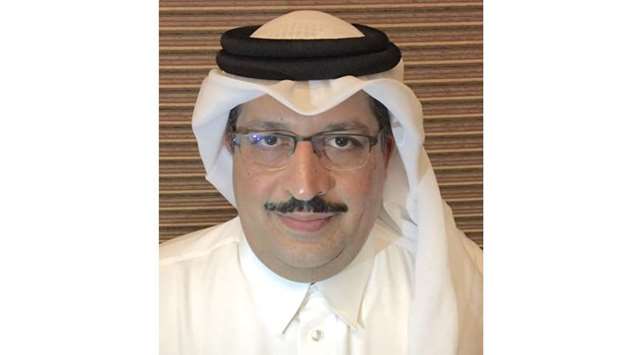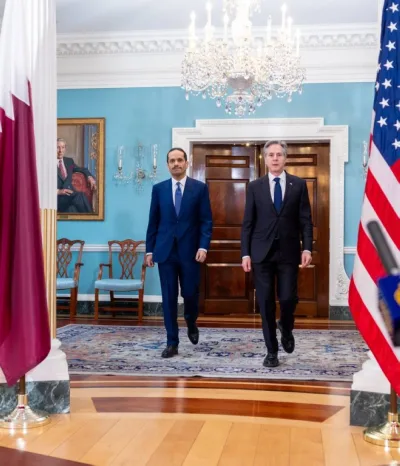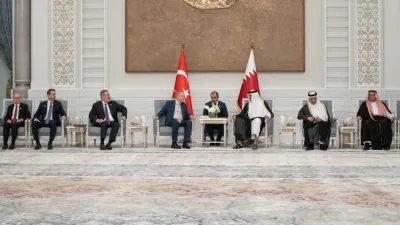As His Highness the Emir Sheikh Tamim bin Hamad al-Thani is on a tour of the United States and is scheduled to meet President Donald Trump on April 10, time is ripe to review Qatar-American relations that have stood the test of time. All attempts to drive a wedge between Qatar and the US have failed as one looks back at the developments during the last 10 months, a period that has been eventful as well as momentous. Not only has Qatar, under the able and wise leadership of the Emir, been able to overcome an unjustified blockade and efforts by vested interests to malign the fair image of Qatar in the eyes of the West, but the nation has also been successful in emerging stronger on all fronts.
Qatar-US relations have long been described as strategic, one that is built on long-term political, economic, and educational partnership. The year 1972 marked the establishing of diplomatic relations between the two countries, with the US opening an embassy in Doha the following year. Since then, bilateral relations have kept growing at a steady pace, thanks to the fast emerging elements of mutual interests.
Based on mutual trust, the ties have proven to be strong by weathering the recent tempests stirred by fake news and lobbying. It is a fact that both nations have hugely benefited from the partnership by co-operating effectively to protect each other’s interests; on one hand, the US is a superpower that is keen to maintain its interests in the Middle East and on the other Qatar is an influencer and key player in the region with a political and economic leverage that far surpasses the reach of many other countries in the region.
During times of calamity, the friendly nations have extended succor to the needy. After Hurricane Katrina devastated large areas of the US Gulf Coast and displaced hundreds of thousands of people in Louisiana, Mississippi and Alabama in 2005, Qatar was quick to donate $100mn for rehabilitation of the victims. When Hurricane Harvey hit Texas last year, Qatar donated $30mn, apparently the largest contribution from a foreign government, to help the affected people recover from the natural disaster.
The two countries hold an annual Strategic Dialogue in which new prospects for cooperation and progress are explored in areas like defence, counter-terrorism, law, aviation, trade and investment. It is an essential threshold for long-term co-operation between the two countries.
For reasons pertaining to international security, Qatar and the US reached an agreement in 2002 to establish Al Udeid Air Base in Qatar, providing command and control of air power throughout the US Central Command Area of Responsibility, flying surveillance and reconnaissance missions to countries in the US Air Forces Central Command region.
As Defence Minister HE Dr Khalid bin Mohamed al-Attiyah announced before, Qatar is planning a huge expansion of Al Udeid Air Base to accommodate around 200 housing units for officers and their families.
The two countries too have launched the Vision 2040 to strengthen military cooperation. According to US sources , the Vision includes Qatar hosting a Navy base for the US 5th Fleet.
In the educational area, Qatar Foundation for Education, Science and Community Development's Education City hosts branch campuses of around half a dozen internationally acclaimed and highly reputable US universities. An educational co-operation agreement facilitates knowledge and expertise exchange between the two nations. From time to time, Qatar’s embassy in Washington offers educational programmes and donations in support of public programmes of schools in the US. The exchange of university students and teachers also takes place between the universities of the two countries. There are about 1200 Qatari students currently studying in the US.
As for the economic and business relationship between the two nations, Qatar has the first legally established American Chamber of Commerce abroad. The Chamber was launched in 2010 with objectives that include the "expansion of trade and investment" between the two nations. Qatar is the sixth largest trading partner of the US ; the trade volume between the two countries has reached $6bn. Qatar Investment Authority has pledged to invest $35bn in US in sectors such as energy, technology, and real estate over five years (2015-20), as well as an additional $10bn for infrastructure projects in the US. As much as 16% of Qatar’s imports came from the US in 2017 with the trade balance registering a surplus of $5bn in favour of the US. Some 102 fully-owned US entities and 505 Qatari-US joint ventures are at present operating in Doha. As many as 40 US firms are licensed under the umbrella of the Qatar Financial Centre. The scope for further economic cooperation is seriously being pursued by the Qatar-US Economic Forum currently underway in Miami, Florida.
The US administration values Qatar as a reliable partner and Washington has been trying to solve the GCC crisis that has not benefited anybody.
During almost all of the phone conversations held so far between His Highness the Emir Sheikh Tamim bin Hamad al-Thani and US President Trump, the latter has thanked Qatar for its efforts in fighting and countering terrorism. This proves the hollowness of the "Qatar supporting extremists" propaganda by the siege countries.
However, it has been ten months now that a quartet of Arab nations led by Saudi Arabia has imposed a land, sea and air blockade on Qatar. During this period, a political dispute that could have been resolved within the GCC or Arab framework, was blown out of proportions on the strength of fake news, massive lobbying and propaganda. Qatar realises that the US is keen to find a solution to the dispute that has jeopardised the security of the entire Gulf region. The Emir-Trump summit is a great opportunity to explore avenues for enhanced bilateral co-operation, as well as ways to ensure lasting amity among the Gulf nations.
[email protected]



